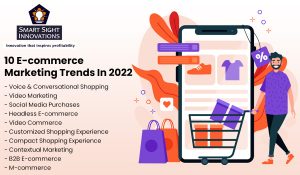 The onset of the pandemic in early 2020 followed by strict lockdowns in many countries that saw severe restrictions in movements has ushered a previously unforeseen acceptance of e-commerce even in segments that were earlier unconvinced about this platform and its offerings. E-commerce has easily been one of the sectors that have seen some of the biggest takeaways in this period.
The onset of the pandemic in early 2020 followed by strict lockdowns in many countries that saw severe restrictions in movements has ushered a previously unforeseen acceptance of e-commerce even in segments that were earlier unconvinced about this platform and its offerings. E-commerce has easily been one of the sectors that have seen some of the biggest takeaways in this period.
People can purchase products across categories and services right from daily needs and groceries to expensive items such as jewelry and other custom products from the comfort of their homes. The pandemic has accelerated the acceptance of e-commerce as a viable option which is proven by the fact that the period between 2020 to 2021 saw more than 77% first-time buyers from Tier II and Tier III cities in India.
This trend is expected to grow further in the coming years with many e-commerce establishments – both regional and local – braced to offer a compelling value proposition to their customers.
We look at some of the most exciting e-commerce industry trends in 2022.
1. Voice & Conversational Shopping
E-commerce brands around the world want to make shopping as seamless as possible for their customers and voice shopping is the next step forward for this, by allowing customers to engage with your business, get recommendations, and find products and make purchases through voice search. Statistics indicate that voice sales alone are expected to reach almost 20 billion dollars by 2023.
2. Video Marketing
New e-commerce trends show that video content acts as the best proof of concept and many e-commerce stores are now utilizing videos on social media and on product pages to showcase product USPs to improve sales. Some businesses have gone a step further and enabled user-generated content that connects with other users and also serves as testimonials.
3. Social Media Purchases
With many marketing campaigns being run on popular social media platforms, more and more businesses will understand the benefit of enabling customers to complete purchases on the social media platform itself without having to be redirected to the e-commerce website.
4. Headless E-commerce
A headless architecture offers businesses extensive flexibility to refine customer experiences based on specific preferences to engage them in more meaningful ways and exceed expectations. This includes offering a wider range of touchpoints where customers can interact with online stores and in different ways that do need a particular structure or top-to-bottom flow – hence the term headless.
5. Video Commerce
To further enhance customer experiences, e-commerce businesses will be keen to roll out live video chats with customers where executives engage with customers to provide more information on products and services and also provide live demos of product performance.
6. Customized Shopping Experience
Businesses, with an intent to cater to the individual needs of their customers, are now looking to sell products that are customizable end-to-end by implementing digital technologies such as AR & VR to encourage them to become partners in the creative. This not only helps offer customers products that are unique but also brings about a sense of achievement by making them partners in the creative process. Some leading brands like Nike offer customers the chance to design their own shoes that builds a different dynamic between the brand and the customer.
7. Compact Shopping Experience
The coming year is expected to witness heavy investments in technologies such as data science and analytics that reduce the time that a customer spends from choosing a product to having it delivered at their doorstep. This includes enabling shorter delivery times, and data-based product development.
8. Contextual Marketing
With many users now having the choice of opting out of cookies, contextual marketing has become more important. Consumers will now have to be reached based on categories, keyword search and also semantic contextual targeting. All of this points to deep personalization for the expert consumer.
9. B2B E-commerce
More and more B2B businesses are upping their game by investing in direct online sales and improving the experience of their clients. With an increased focus on effective B2B e-commerce strategies, many B2B businesses understand that the cost of customer acquisition is lesser with an increased focus on online selling.
10. M-commerce
Industry experts predict that m-commerce sales will more than double by 2025 and to be a part of this success some of the best e-commerce website development companies have expanded their expertise to build an easy and engaging experience for mobile shoppers.











